
After Azerbaijan s Victory Republic Of Karabakh Will Cease To Exist Report
The self-declared republic of Nagorno-Karabakh will cease to exist from next year after its president signed a decree dissolving state institutions following its defeat by AzerbaijanThe Azerbaijani victory last week triggered a huge exodus of ethnic Armenians living in Nagorno-Karabakh and marked the end of decades of conflict – and potentially the end of centuries of Armenian presence in the regio President Samvel Shahramanyan’s decree called for all institutions and organizations of the Republic of Artsakh – which is not recognized internationally to dissolve from January 1 2024. “The Republic of Nagorno-Karabakh (Artsakh) ceases its existence read the decree
Azerbaijan reclaimed control of the breakaway region last week after an offensive lasting just 24 hours Nagorno-Karabakh lies within Azerbaijan’s borders but has for decades operated autonomously with a de facto government of its own Azerbaijan has long been clear about the choice confronting Karabakh Armenians: Stay and accept Azerbaijani citizenship, or leave. The majority of the population has already voted with its feet: Tens of thousands have fled their ancestral home rather than submitting to rule by Baku After generations of intermittent wars and brittle ceasefires, the suddenness with which Nagorno-Karabakh fell to Azerbaijani troops – and with which its ethnic Armenian population has scrambled to evacuate – has been startling
Azerbaijan launched its offensive on September 19, firing missile and drones at the regional capital of Stepanakert in what marked the start of a third war fought for control of the region in as many decades Under the Soviet Union, of which Azerbaijan and Armenia are both former members, Nagorno-Karabakh became an autonomous region within the republic of After years of sporadic clashes, the Second Karabakh War began in 2020. Azerbaijan, backed by its historic ally Turkey, reclaimed a third of the territory of Karabakh in just 44 days, before both sides agreed to lay down their weapons in a Russian-brokered ceasefireAzerbaijan Karabakh officials passed a resolution in 1988 declaring its intention
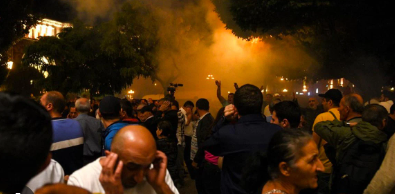
Armenia causing fighting to break out as the Soviet Union began to crumble, in what became the First Karabakh War. About But the third war was to last just a day. The Karabakh presidency said its army had been outnumbered “several times over” by Azerbaijani forces and had no choice but to surrender and agree to “the dissolution and complete disarmament of its armed forces,” by which time Azerbaijan had killed at least 200 people and injured many hundreds more. A second ceasefire – also brokered by Russia – came into effect30,000 people were killed over six years of violence, which ended in 1994 when the Armenian side gained control of the region The swiftness of Karabakh’s surrender was a measure of its military inferiority. Armed with Turkish drones, Azerbaijan won a crushing victory in 2020, attacking not only
Nagorno-Karabakh but also Armenia itself. Unlike in 2020, Armenia’s armed forces did not attempt to defend the region during the most recent offensive – in part out of fear of further Azerbaijani aggression Karabakh’s despair was Baku’s triumph. In a speech to the nation Wednesday evening, Azerbaijan’s President Ilham Aliyev announced his forces had “punished the enemy properly” and that Baku had restored its sovereignty “with an iron fist Shahramanyan, the regions’ president, said Thursday he had signed the decree “due to the current difficult military-political situation.” The Azerbaijani presidency had previously insisted that the Artsakh government – as well as its armed forces – also dissolve itself. It warned if they did not do so, that the offensive would continue “until the end
The day after the ceasefire, Baku sent representatives to meet with Karabakh officials and discuss “reintegration.” Few details were released of the talks, but Azerbaijan has long been explicit about the choice confronting ethnic Armenians in the region Farid Shafiyev, chair of the Center of Analysis of International Relations in Baku – an organization involved in the government discussions about “reintegration” – told CNN: “Those who don’t want to accept Azerbaijani jurisdiction, they have to leave. Those who would like to stay and get the passports, they are welcome to stay Aliyev claimed that the rights of Karabakh Armenians “will be guaranteed,” but Armenia’s Prime Minister Nikol Pashinyan and international experts have repeatedly warned of the risk of ethnic cleansing











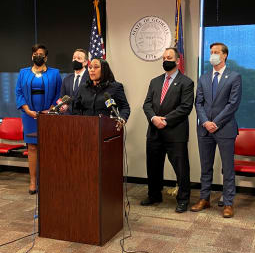
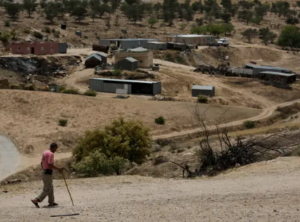

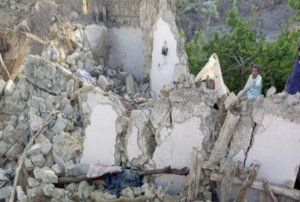
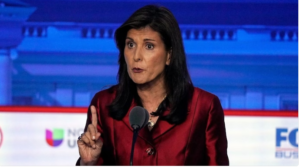
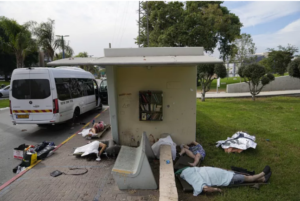
Average Rating